Related Research Articles

Charles Robert Redford Jr. is an American actor and filmmaker. He has received numerous accolades such as an Academy Award, a BAFTA Award, and two Golden Globe Awards as well as the Cecil B. DeMille Award in 1994, the Screen Actors Guild Life Achievement Award in 1996, the Academy Honorary Award in 2002, the Kennedy Center Honors in 2005, the Presidential Medal of Freedom 2016 and the Honorary César in 2019. He was named by Time as one of the 100 most influential people in the world in 2014.
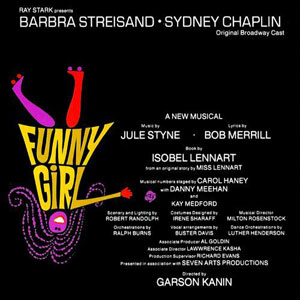
Funny Girl is a musical with score by Jule Styne, lyrics by Bob Merrill, and book by Isobel Lennart, that first opened on Broadway in 1964. The semi-biographical plot is based on the life and career of comedian and Broadway star Fanny Brice, featuring her stormy relationship with entrepreneur and gambler Nicky Arnstein.
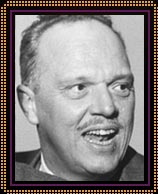
Joshua Lockwood Logan III was an American theatre and film director, playwright and screenwriter, and actor. He shared a Pulitzer Prize for co-writing the musical South Pacific and was involved in writing other musicals.

Raymond Otto Stark was an American film producer and talent agent. Stark's background as a literary and theatrical agent prepared him to produce some of the most profitable films of the 1960s, 1970s, 1980s, and 1990s, such as The World of Suzie Wong (1960), West Side Story (1961), The Misfits (1961), Lolita (1962), The Night of the Iguana (1964), Reflections in a Golden Eye (1967), Funny Girl (1968), The Owl and the Pussycat (1970), The Goodbye Girl (1977), The Toy (1982), Annie (1982), and Steel Magnolias (1989).

Barefoot in the Park is a romantic comedy by Neil Simon. The play premiered on Broadway in 1963, starring Robert Redford and Elizabeth Ashley. It was made into a film in 1967, which starred Redford and Jane Fonda.

Jerome Irving Wald was an American screenwriter and a producer of films and radio programs.

Mack & Mabel is a musical with a book by Michael Stewart and music and lyrics by Jerry Herman. The plot involves the tumultuous romantic relationship between Hollywood director Mack Sennett and Mabel Normand, who became one of his biggest stars. In a series of flashbacks, Sennett relates the glory days of Keystone Studios from 1911, when he discovered Normand and cast her in dozens of his early "two-reelers", through his creation of Sennett's Bathing Beauties and the Keystone Cops to Mabel's death from tuberculosis in 1930.

Robert Alan Morse was an American actor. Known for his performances on stage and screen, he received two Tony Awards, a Primetime Emmy Award and a Screen Actors Guild Award.
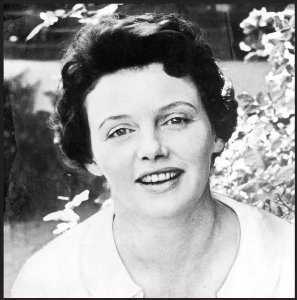
Jean Kerr was an Irish-American author and playwright born in Scranton, Pennsylvania, who authored the 1957 bestseller Please Don't Eat the Daisies and the plays King of Hearts in 1954 and Mary, Mary in 1961.
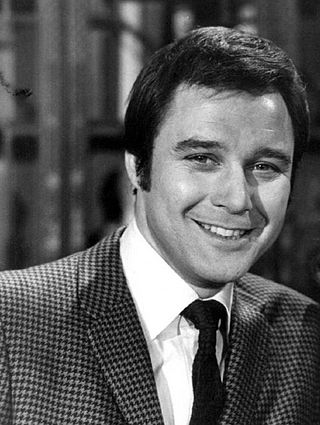
Michael Callan, sometimes known as Mickey Collins, was an American actor best known for originating the role of Riff in West Side Story on Broadway, and for his film roles for Columbia Pictures, notably Gidget Goes Hawaiian, The Interns and Cat Ballou.

The Walter Kerr Theatre, previously the Ritz Theatre, is a Broadway theater at 219 West 48th Street in the Theater District of Midtown Manhattan in New York City. The theater was designed by Herbert J. Krapp and was constructed for the Shubert brothers in 1921. The venue, renamed in 1990 after theatrical critic Walter Kerr, has 975 seats across three levels and is operated by Jujamcyn Theaters. The facade is plainly designed and is made of patterned brick. The auditorium contains Adam-style detailing, two balconies, and murals.
Norman Krasna was an American screenwriter, playwright, producer, and film director who penned screwball comedies centered on a case of mistaken identity. Krasna directed three films during a forty-year career in Hollywood. He garnered four Academy Award screenwriting nominations, winning once for 1943's Princess O'Rourke, which he also directed.

Who Was That Lady? is a 1960 black and white American comedy film directed by George Sidney and starring Tony Curtis, Dean Martin, and Janet Leigh.
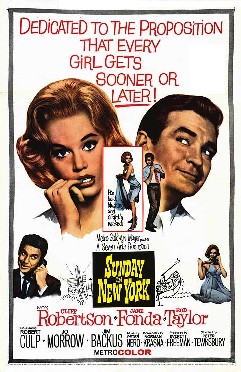
Sunday in New York is a 1963 American romantic comedy film directed by Peter Tewksbury from a screenplay by Norman Krasna, based on Krasna's 1961 play of the same name. Filmed in Metrocolor, the film stars Cliff Robertson, Jane Fonda, and Rod Taylor, with Robert Culp, Jo Morrow, and Jim Backus. The score was composed and recorded by Peter Nero, who also appears as himself performing in a nightclub; Mel Tormé sang the title song.
Dear Ruth is a successful 1944 Broadway play written by Norman Krasna. It ran for 680 performances.
William Hartwell Snyder, Jr. was an American playwright and a longtime faculty member of the theatre department at the University of Tennessee at Martin. He is best known for his play The Days and Nights of BeeBee Fenstermaker.
Time for Elizabeth is a 1948 play written by Norman Krasna and Groucho Marx.
The Man With Blond Hair is a play by Norman Krasna based on a true story. Although Krasna became better known for comedy this was a drama; the writer later said that he "really wrote" the play "to win the Nobel Peace Prize". The play only ran for 7 performances on Broadway. This failure prompted him to return to comedy and Krasna wrote Dear Ruth his most popular hit.
Love in E-Flat is a 1967 comedy play by Norman Krasna.
We Interrupt This Program... is a 1975 play by Norman Krasna.
References
- ↑ Sunday in New York original production Playbill at Playbill
- ↑ Theatre: Play by Krasna: Sunday in New York' Opens at the Cort By HOWARD TAUBMAN. New York Times 30 Nov 1961: 40.
- ↑ Echoes and Unspoken Ideas By Walter Kerr. The Washington Post and Times-Herald 17 Dec 1961: G3.
- ↑ Callan p 88
- ↑ Callan p 89
- ↑ 2 SHOWS PLANNED BY BLOOM GARDEN: ' 1,000,000 Bank Note' and 'How Much?' Due in '63 ANTA Has New Project Three Attractions to Close Eva Gabor Starts a Firm Bouwerie Lane to Open in Fall Merrick Negotiates By SAM ZOLOTOW. New York Times 9 May 1962: 45.
- ↑ 'Sunday' Popular Los Angeles Times 4 June 1963: C6.
- ↑ Spada p 112